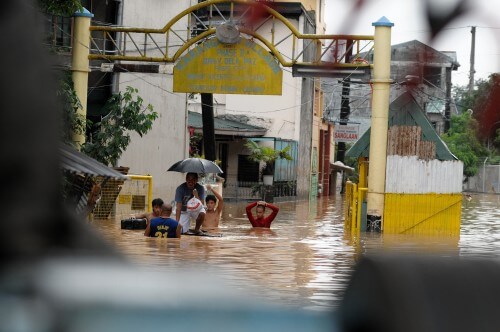196 countries supported a compromise proposal between the developed and developing countries * The Greens: too little and too late for residents in sensitive areas, the proposal is half-baked * 2014 is expected to take its place as a record year

After coming to the brink of failure, the people of the United Nations Conference on the Climate Crisis, which is convening these days in Lima, the capital of Peru, succeeded in preparing the infrastructure for the world climate conference that is expected to be held in Paris next year.
The Lima agreement was adopted after four hours earlier its previous draft was rejected by the developing countries who accused the rich countries of reducing their responsibility to combat global warming and to blame for its impact. The declaration states that every UN member state must act against global warming.
The Minister of the Environment of Peru presented a new draft, the fourth shortly before midnight yesterday (Sunday) local time and said that he hoped it would satisfy all parties given the dilution in the number of delegations that remained, and which were given an hour to review it.
"Although the text is not perfect, it includes the positions of the parties," said Minister Manuel Fulgar Vidal, who sat at the head of the gathering and spent the entire afternoon and evening in separate meetings with the delegations.
The main goal of the two-week conference that convened in Lima was modest - reaching an agreement on what information is needed to convince the countries to sign up for the large climate conference expected to be held in Paris next year. However, this also got complicated when some developing countries protested against the draft on the grounds that it blurs the difference between what rich countries and poor countries should do against global warming.
The fourth draft addressed these concerns by declaring "common goals, but distinct responsibilities" for addressing global warming.
The environmental groups expressed disappointment with the agreement. "The issues and donors have failed to build momentum following these talks," said Jami Hen, a spokeswoman representing 350 environmental organizations. "When the effects of climate change are already beginning to affect sensitive countries around the world, the need for immediate action should have been clearer, and yet the rich countries are still dragging their feet on all issues from the allocation of funds to the reduction of greenhouse gas emissions," he said.
The World Wildlife Fund (WWF) said that the high temperatures recorded this year all over the world should have pushed the participants into a stronger deal.
"In the face of an extreme weather event in the Philippines in the hottest year in history so far, the governments whose representatives participated in the UN climate conference in Lima prepared a half-baked plan to reduce emissions," says Samantha Smith, director of climate change and energy at WWF, in a statement issued by the fund.
